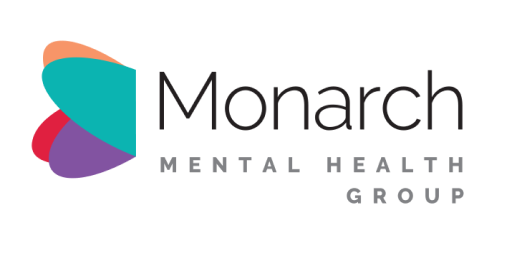Depression is a complex condition that can significantly impact daily life. While antidepressant medications are a common treatment, transcranial magnetic stimulation (TMS) is emerging as a promising alternative, particularly for those who haven’t found relief with traditional methods. Understanding the differences between TMS and medication can help you make an informed choice about the best treatment for your mental health.
What Is TMS?
Transcranial magnetic stimulation (TMS) is a safe, non-invasive, drug-free treatment that uses magnetic fields to stimulate specific brain regions involved in mood regulation. It has been proven to be particularly beneficial for individuals with treatment-resistant depression and severe depression or major depressive disorder, meaning their symptoms persist despite trying medications or therapy.
TMS therapy is administered over several weeks in a clinical setting. During each pain-free session, which typically lasts 20–40 minutes, a magnetic coil is placed near the scalp to deliver targeted pulses to the brain.
How Do Antidepressant Medications Work?
Antidepressants, such as selective serotonin reuptake inhibitors (SSRIs) or serotonin-norepinephrine reuptake inhibitors (SNRIs), are designed to adjust the levels of neurotransmitters like serotonin and dopamine in the brain. These chemical changes can improve mood and alleviate symptoms of depression.
Medications are typically taken daily, and it may take several weeks to see results. While effective for many, antidepressants don’t work for everyone - and some individuals experience side effects such as weight changes, fatigue, digestive issues, or sexual dysfunction, which can affect their quality of life.
Key Differences: TMS vs. Medication
1. Mechanism of Action
- TMS: Stimulates brain regions associated with mood directly through magnetic pulses, improving depressive symptoms.
- Medication: Alters neurotransmitter levels to influence brain function and mood, alleviating depressive symptoms.
2. Side Effects
- TMS: Common side effects are mild, such as scalp discomfort or temporary headaches, without systemic side effects.
- Medication: Can cause a variety of systemic side effects, including nausea, weight changes, and sleep disturbances.
3. Duration of Treatment
- TMS: Involves 4–6 weeks of daily sessions, with optional maintenance treatments.
- Medication: Requires long-term use to maintain symptom control, often over months or years.
4. Effectiveness for Treatment-Resistant Depression
- TMS: Specifically effective for individuals with depression or severe depression who haven’t responded to medications, with studies showing significant symptom improvement.
- Medication: May not work for everyone, particularly those with severe or treatment-resistant depression.
5. Customisation
- TMS: Tailored to individual needs, with adjustable intensity and frequency of magnetic pulses.
- Medication: Involves trial-and-error to find the right drug and dosage, which can be time-consuming.
The Advantages of Transcranial Magnetic Stimulation
-
Non-Invasive and Drug-Free
TMS doesn’t require medication like selective serotonin reuptake inhibitors (SSRIs) or serotonin-norepinephrine reuptake inhibitors (SNRIs), and doesn’t involve invasive procedures, making it an appealing option for individuals looking to avoid pharmaceutical side effects. -
Minimal Side Effects
Compared to antidepressants, TMS has fewer and milder side effects, primarily limited to localised discomfort during treatment. -
Effective for Treatment-Resistant Cases
TMS is especially valuable for those who haven’t responded to medications or traditional therapy, offering hope for symptom relief by closing this mental health treatment gap.
Who Should Consider Transcranial Magnetic Stimulation?
TMS is ideal for individuals who:
- Have not found relief with at least two different antidepressant medications.
- Experience intolerable side effects from medication.
- Prefer a drug-free approach to treating depression or major depressive disorder.
However, TMS may not be suitable for everyone, including individuals with metal implants near the head or a history of seizures. A mental health professional can assess your suitability for TMS.
-
 Hover message
Hover message
Why Is TMS a Promising Alternative?
While antidepressant medications remain a vital treatment for many people with depression or major depression, TMS offers unique advantages. It directly targets brain activity linked to depression without altering the body’s chemical balance. For individuals with treatment-resistant depression or those unable to tolerate medication side effects, TMS therapy provides an effective, safe, and well-tolerated alternative.
Medication can still be an effective choice, especially for individuals with mild to moderate symptoms of depression or those who prefer the convenience of a daily oral treatment. In many cases, medication works best when combined with therapy.
Combining TMS and Medication
In some cases, TMS and medication can work together. For example, individuals undergoing TMS for depression or major depression may continue with their current medication regimen to enhance results. A mental health provider can help create a personalised treatment plan that integrates both approaches.
Choosing the Right Treatment for You
The decision between TMS therapy and medication depends on your individual circumstances, including the severity of your depression, treatment history, and preferences. Consulting with a qualified mental health professional is essential to identify the best path forward for your recovery.
A Promising Future with Transcranial Magnetic Stimulation
TMS therapy represents an exciting and effective alternative for treating depression and major depression, especially for those who have struggled with traditional medication. Its non-invasive nature, minimal side effects, and success in addressing treatment-resistant depression make it a powerful tool in mental health care. Contact us at Monarch Mental Health Group today to learn more about TMS and how it compares to medication. Let us guide you on the path to recovery and rediscovering your mental well-being.
FAQs
What is Transcranial Magnetic Stimulation (TMS), and how does it work?
Transcranial magnetic stimulation (TMS) is a non-invasive treatment for depression that uses magnetic pulses to stimulate specific areas of the brain responsible for mood regulation. This safe, evidence-based treatment involves placing a magnetic coil near the scalp during 20–40-minute sessions over several weeks. TMS therapy is particularly effective for individuals with treatment-resistant depression or major depressive disorder, offering a safe and targeted approach without the systemic side effects of medication.
How is TMS different from antidepressant medication?
Transcranial Magnetic Stimulation (TMS) directly stimulates brain activity linked to depression using magnetic pulses, while antidepressants alter neurotransmitter levels like serotonin and dopamine to regulate mood. TMS has fewer systemic side effects compared to medication and is particularly effective for treatment-resistant depression and major depressive disorder. Additionally, TMS is non-invasive and doesn’t require daily use, making it an appealing alternative for those unable to tolerate or benefit from medication.
Is TMS effective for everyone with depression?
Transcranial Magnetic Stimulation (TMS) is most effective for individuals with treatment-resistant depression or major depressive disorder who haven’t found relief with at least two antidepressant medications. It is also recommended for people who suffer weight gain or nausea from antidepressants. While many experience significant symptom improvement, TMS therapy may not work for everyone. It’s important to undergo an evaluation with a mental health professional to determine if TMS is suitable for your specific condition and needs. Contact our TMS clinics in Australia today for more information.
Can I combine TMS with antidepressant medication?
Yes, Transcranial Magnetic Stimulation (TMS) can be combined with medication in certain cases, including for patients with major depression. Some individuals continue their current antidepressant regimen during TMS treatment to maximise relief from symptoms of depression. A mental health professional at one of our clinic locations in Australia can create a personalised plan that integrates TMS and medication, ensuring a comprehensive approach to managing your depression effectively.
Are there any side effects of TMS?
Transcranial Magnetic Stimulation (TMS) side effects are generally mild and may include scalp discomfort, headaches, or mild fatigue during or after treatment sessions. These effects are temporary and typically resolve shortly after treatment. Unlike antidepressants, TMS therapy doesn’t cause systemic side effects and physical symptoms like nausea or weight gain, making it a well-tolerated option for many individuals suffering from the symptoms of depression. Contact Monarch Mental Health Group today for more information.
.png)
About The Author
Dr Ted Cassidy
Dr. Ted Cassidy is a psychiatrist and co-founder of Monarch Mental Health Group in Australia, which provides innovative treatments for depression, PTSD, and anxiety. Monarch Mental Health is recognized as Australia's first outpatient clinic offering assisted therapy and is the largest provider of outpatient magnetic stimulation therapy.

